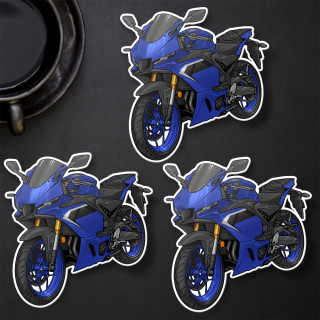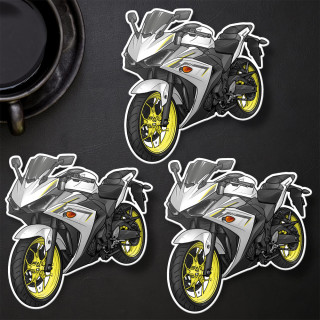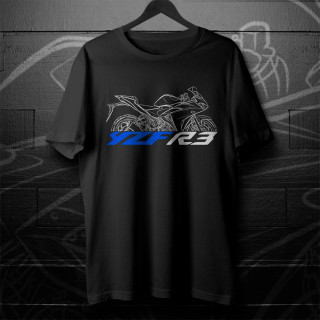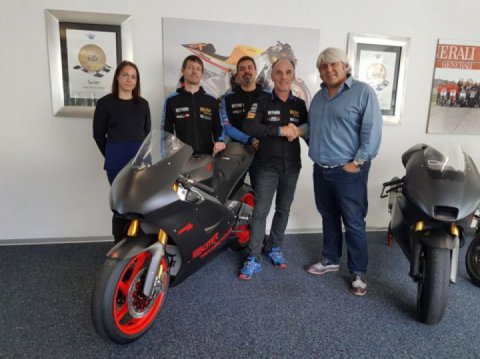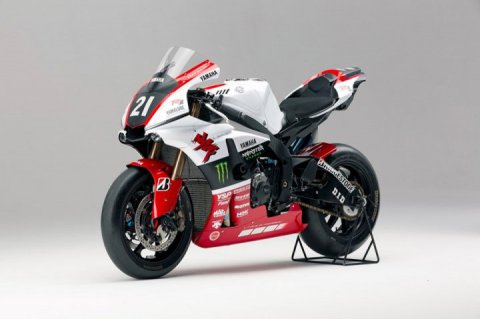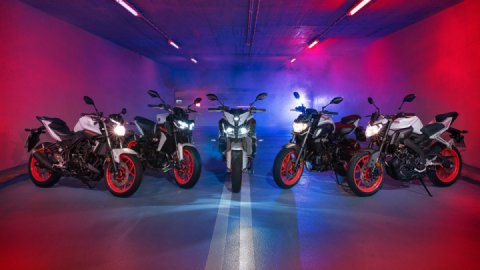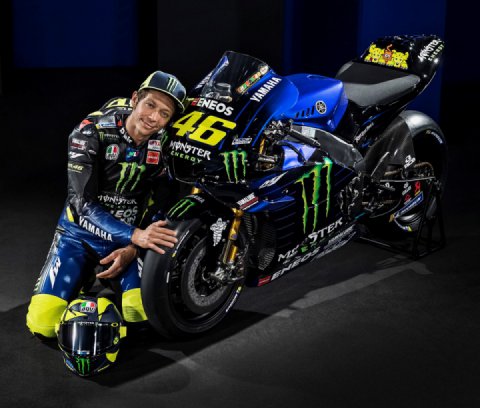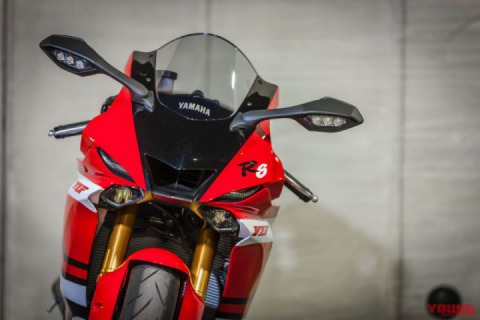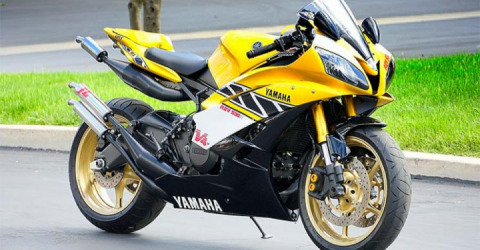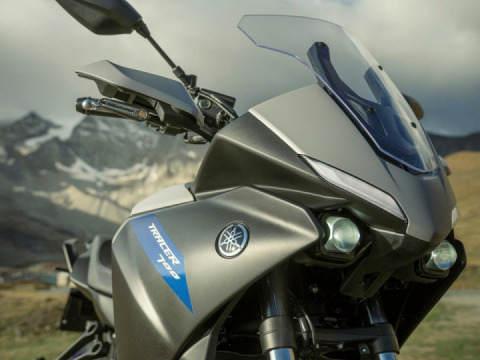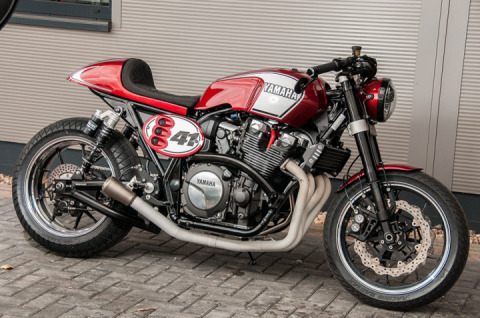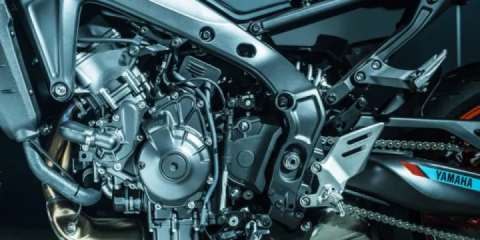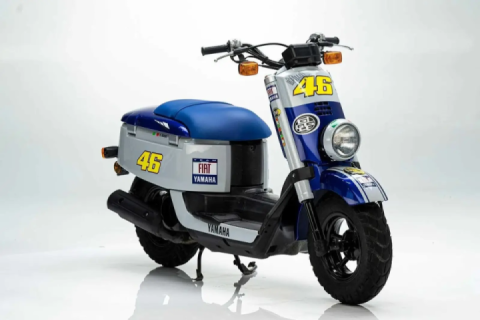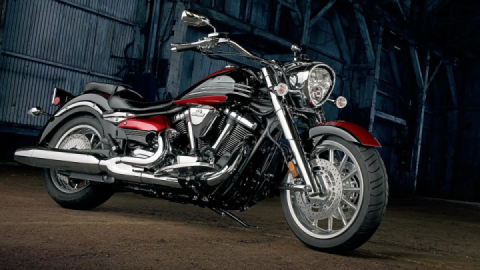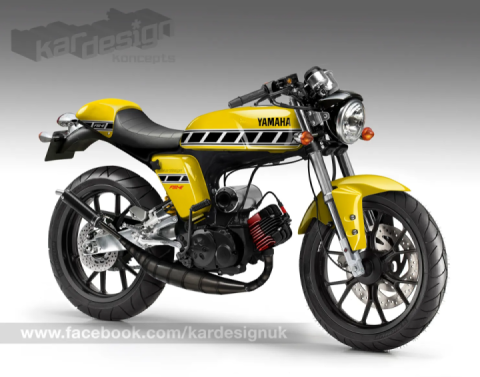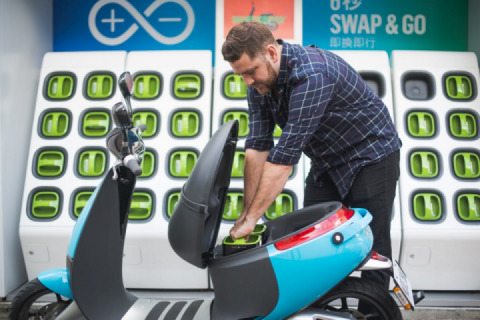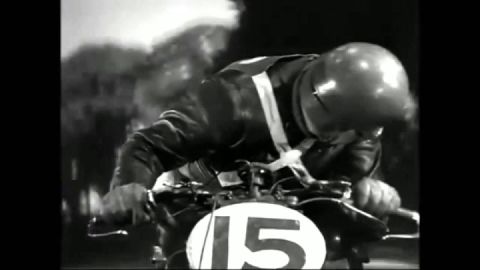
Yamaha R3 upgraded for 2019
After multiple patent leaks and spy shots regularly leaking on the internet for the last couple of months, Yamaha has now officially unveiled the facelifted YZF-R3 in Europe.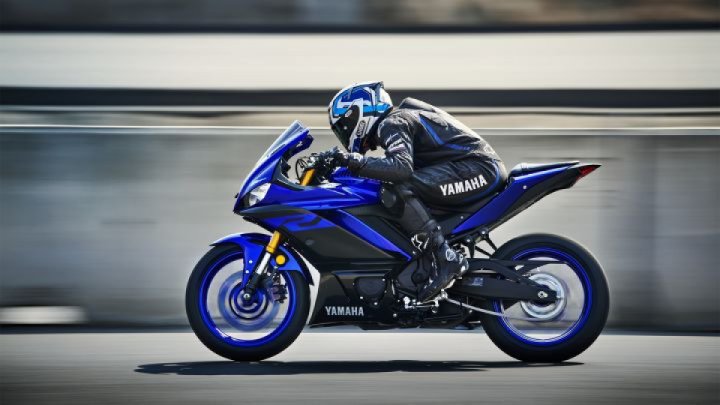 While the latest iteration of the 321cc supersport isn’t a complete redesign from the last generation, it does get a sharper and sportier front facia, a full-LCD digital instrument cluster, and new 37mm USD forks from Kayaba. However, just as they have been doing with the R15, we fear we will only get to see this new version with traditional front forks in India, to keep costs in check.
While the latest iteration of the 321cc supersport isn’t a complete redesign from the last generation, it does get a sharper and sportier front facia, a full-LCD digital instrument cluster, and new 37mm USD forks from Kayaba. However, just as they have been doing with the R15, we fear we will only get to see this new version with traditional front forks in India, to keep costs in check.
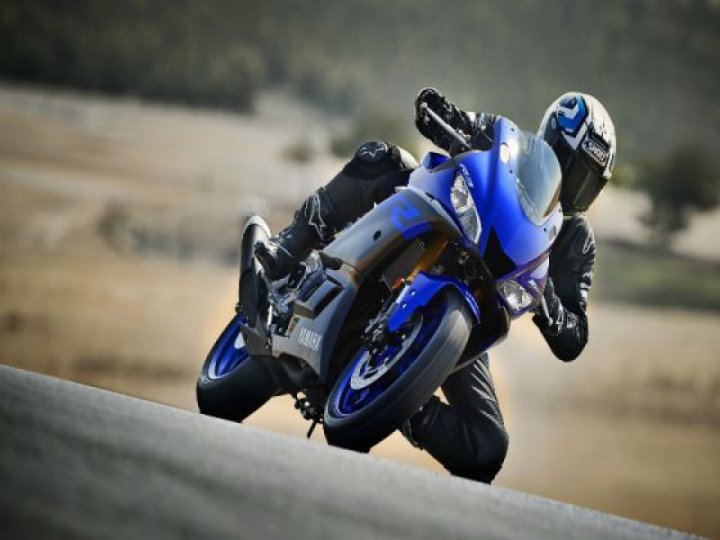 Up front, the new R3 features a redesign with LED headlamps, a large faux air intake and a taller windscreen, along the lines of the new R15 v3.0. Even the new fuel tank seems to borrow its design from the R15, which again is inspired from the R1. The fuel tank rakes in sharply into the seat, which gets a slimmer profile. Not that we are complaining, but the rear design of the R3 remains exactly similar to its predecessor and continues to feature LED tail lamps.&
Up front, the new R3 features a redesign with LED headlamps, a large faux air intake and a taller windscreen, along the lines of the new R15 v3.0. Even the new fuel tank seems to borrow its design from the R15, which again is inspired from the R1. The fuel tank rakes in sharply into the seat, which gets a slimmer profile. Not that we are complaining, but the rear design of the R3 remains exactly similar to its predecessor and continues to feature LED tail lamps.&
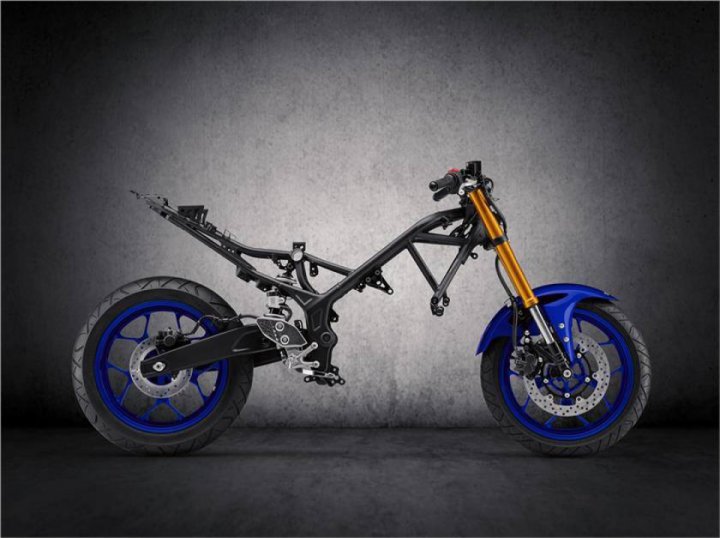 Among the major changes to the underpinnings of the new R3 are radially mounted brake calipers. Apart from this, the bike remains mechanically unchanged as it is powered by the same 321cc, twin-cylinder, liquid-cooled, DOHC, 4-valve motor that makes 42PS on the India-specced variant.
Among the major changes to the underpinnings of the new R3 are radially mounted brake calipers. Apart from this, the bike remains mechanically unchanged as it is powered by the same 321cc, twin-cylinder, liquid-cooled, DOHC, 4-valve motor that makes 42PS on the India-specced variant.
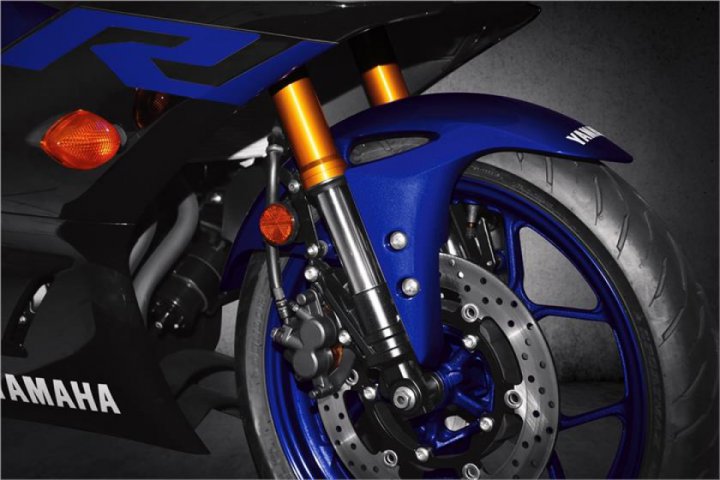 In the wake of the launch of the larger Kawasaki Ninja 400 that makes 49PS, a more powerful version of the R3 would have made much more sense -- but disappointingly enough, that’s not the case. Additionally, the new R3 also skips the inclusion of variable valve actuation (VVA) or a slipper clutch.
In the wake of the launch of the larger Kawasaki Ninja 400 that makes 49PS, a more powerful version of the R3 would have made much more sense -- but disappointingly enough, that’s not the case. Additionally, the new R3 also skips the inclusion of variable valve actuation (VVA) or a slipper clutch.
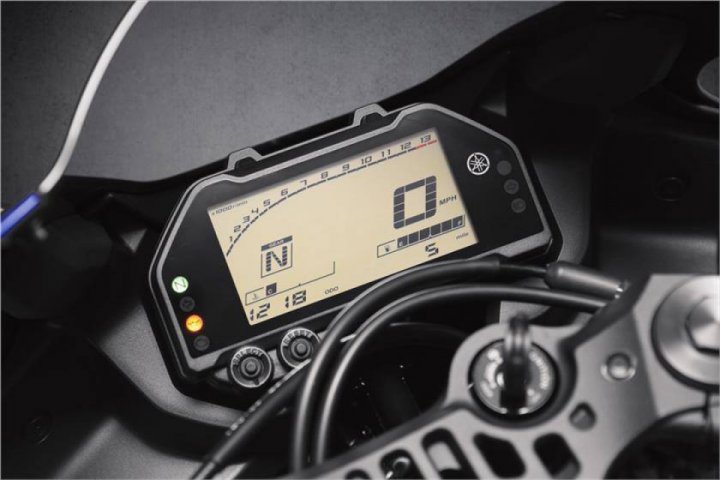 The addition of a full-LCD display instrumentation cluster is a welcome upgrade as Yamaha has ditched the old semi-digital cluster for a white-backlit module that houses all information, including engine heat levels.
The addition of a full-LCD display instrumentation cluster is a welcome upgrade as Yamaha has ditched the old semi-digital cluster for a white-backlit module that houses all information, including engine heat levels.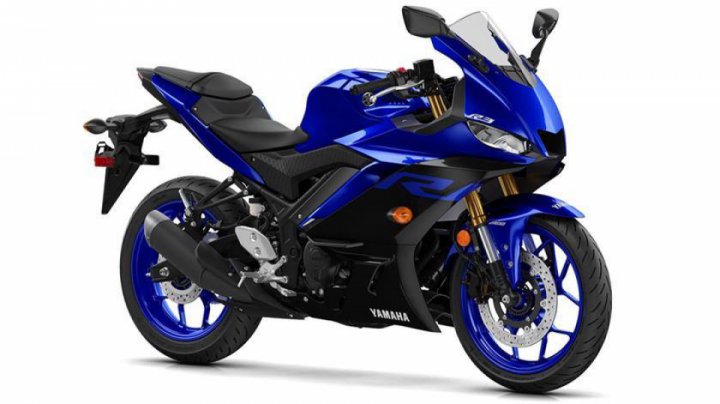 The Yamaha R3 has been on sale in India for quite a while now. While there are no official announcements on the availability of the 2019 R3 in India, it is expected to land here anytime around mid-2019 as it was recently updated when it got ABS and stickier Metzeler Sportec M5 tyres as standard equipment. What is certain, though, is that it will face stiff competition from the likes of the Kawasaki Ninja 300, Benelli 302R and the KTM RC 390.
The Yamaha R3 has been on sale in India for quite a while now. While there are no official announcements on the availability of the 2019 R3 in India, it is expected to land here anytime around mid-2019 as it was recently updated when it got ABS and stickier Metzeler Sportec M5 tyres as standard equipment. What is certain, though, is that it will face stiff competition from the likes of the Kawasaki Ninja 300, Benelli 302R and the KTM RC 390.
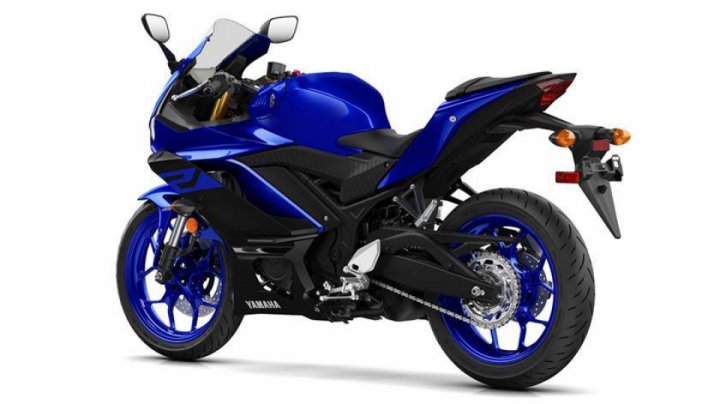 What do you think of the new R3 facelift? Is it a big step up from its predecessor on the design front? Do let us know in the comments below.
What do you think of the new R3 facelift? Is it a big step up from its predecessor on the design front? Do let us know in the comments below.
#Moto #R3 #Yamaha #Sportbike


